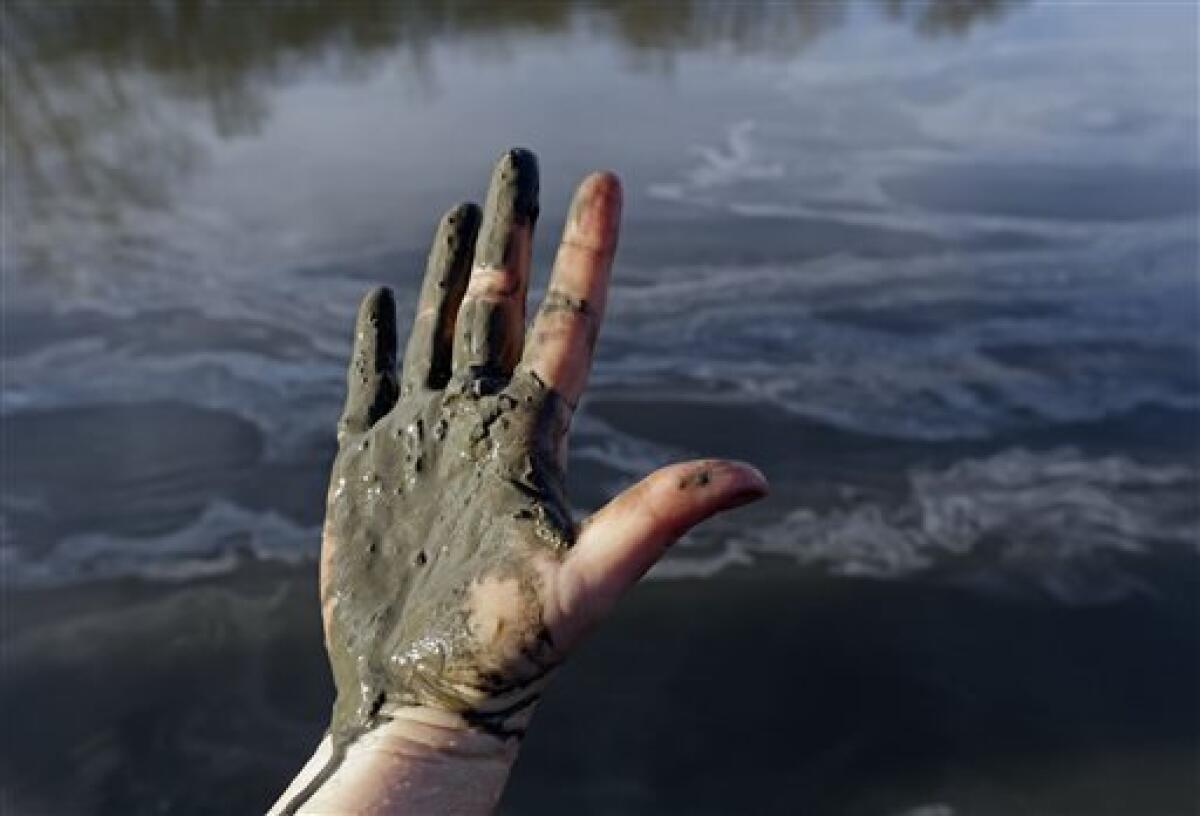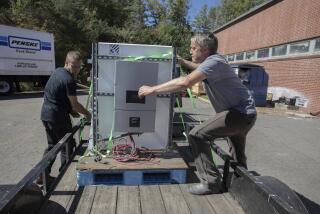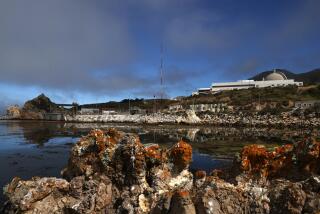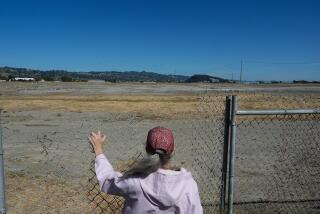Duke Energy receives 5 more citations weeks after coal ash spill

FAYETTEVILLE, N.C. — After weeks of downplaying a massive coal ash spill, North Carolina regulators issued violation notices Monday to five more Duke Energy power plants, in addition to two citations late last week at the site that polluted the Dan River a month ago.
Also Monday, the state Department of Environment and Natural Resources described the Feb. 2 spill as an “environmental disaster.”
The latest five citations focused on Duke Energy’s coal ash storage basins in five counties, where regulators say the giant utility failed to secure proper permits for storm water discharges. Regulators say more enforcement actions are possible as they look into the handling of coal ash at all 14 Duke-owned power plants in North Carolina.
The violations carry potential fines of $25,000 per day per violation, pending the outcome of an agency investigation.
At least 39,000 tons of coal ash and 27 million gallons of contaminated water spilled into the Dan River Feb. 2 after a storm water pipe breach at a Duke Energy plant in Eden, N.C. The spill coated the river bottom with coal ash for at least 70 miles in North Carolina and Virginia, leaving piles 5 feet deep in some locations.
Environmental groups have accused the state Department of Environment and Natural Resources of ignoring years of coal ash seepage at 32 Duke Energy coal ash storage basins. The agency cooperated closely with Duke Energy in the days after the spill, joining the utility in issuing statements that downplayed its severity.
But the agency backed down in the face of public pressure. It also backtracked on initial statements about safe surface water levels, acknowledging a week after the spill that it had detected arsenic that exceeded safe levels. And after the agency assured residents there was no danger to humans or wildlife, state health officials warned people to avoid contact with the Dan River and not eat fish taken from its waters.
Municipal water officials in two Virginia cities downstream have said normal treatment makes water from the Dan safe to drink.
Environmental groups have taken their own water samples, however, which showed levels of arsenic, lead and other heavy metals exceeding state surface water standards.
Since the Republican Party won control of the Legislature in 2010 and the governor’s office in 2012, the state environmental agency has adopted a policy of cooperating with and assisting those it regulates, entities the new agency director calls “customers.”
The agency admitted in court in August that Duke Energy was violating state and federal environmental laws by leaking coal ash into the Dan River from the 27-acre basin that failed in February, yet waited until late Friday to issue violation notices for storm water runoff.
Federal prosecutors have launched a criminal investigation into the agency’s relationship with Duke Energy regarding coal ash basins. In subpoenas issued to officials at the agency and at Duke Energy, prosecutors say they are seeking records of any cash transactions or exchange of items of value.
The agency “knew about these violations yet took no action until after the spill, the federal criminal grand jury and intense press scrutiny,’’ Frank Holleman, senior attorney for the Southern Environmental Law Center, said of the coal ash leaks at the Dan River plant.
The law center attempted to sue Duke Energy in federal court last year to force it to clean up its 32 coal ash containment basins. But its suit was blocked by the state agency, which sued Duke in federal court.
Holleman said the state lawsuits were designed to protect Duke Energy because they did not require the utility to clean up or move the ash basins, and because the state proposed a fine far lower than Duke would have faced if the environmental center had prevailed in federal court under the Clean Water Act.
The law center wants Duke to move its coal ash to dry, lined landfills away from waterways. The two biggest utilities in neighboring South Carolina agreed to do so under pressure from the center, Holleman said.
“It is shocking that Duke Energy was openly violating the most fundamental requirements of clean water laws, and discharging industrial storm water directly into the Dan River illegally,’’ Holleman said.
John Skvarla, the secretary of Environment and Natural Resources, has said the agency is a “partner’’ to those it regulates, whom he considers “customers.’’ Skvarla, a Raleigh businessman, was appointed by Republican Gov. Pat McCrory, who worked for Duke Energy for 28 years.
In a letter to a Raleigh newspaper in December, Skvarla wrote: “People in the private sector pour their hearts and souls into their work; instead of crushing their dreams, they now have a state government that treats them as partners.’’
On Monday, Skvarla adopted a more aggressive tone toward the country’s largest electricity utility a month after the third-worst coal ash spill in U.S. history.
“Our agency is determined to make sure that all of these facilities are in compliance with state and federal law,’’ Skvarla said in a statement. “We are doing everything in our power to prevent environmental disasters like what we’ve seen at the Dan River. We are committed to protecting public health and the natural resources of our state.’’
Follow LA Times National on Facebook
More to Read
Sign up for Essential California
The most important California stories and recommendations in your inbox every morning.
You may occasionally receive promotional content from the Los Angeles Times.










